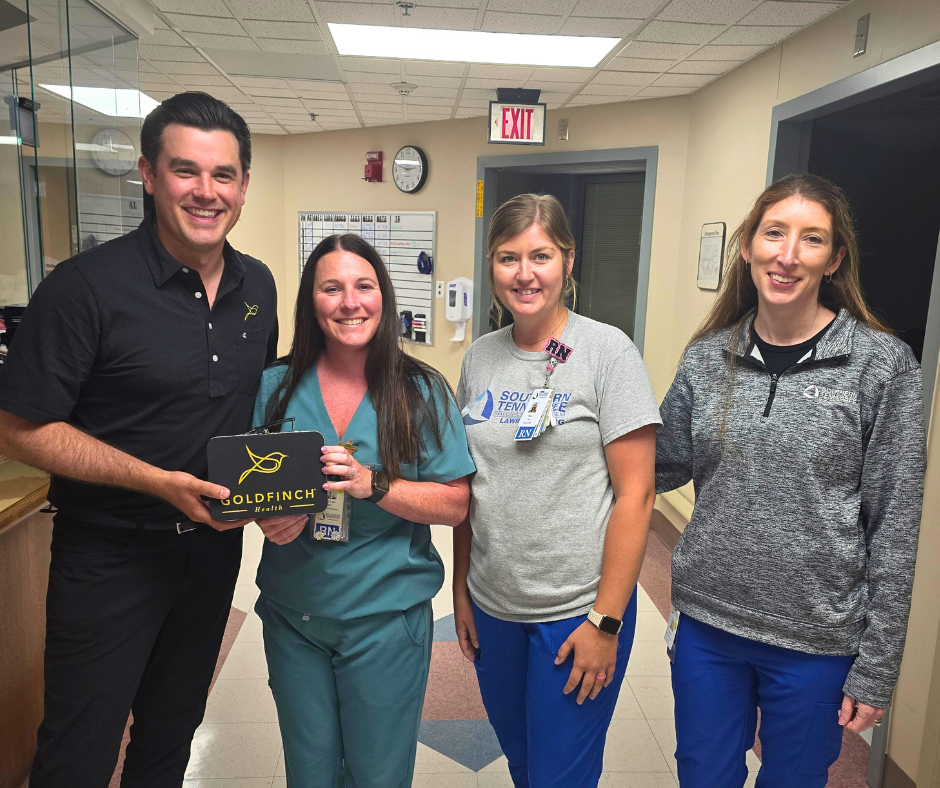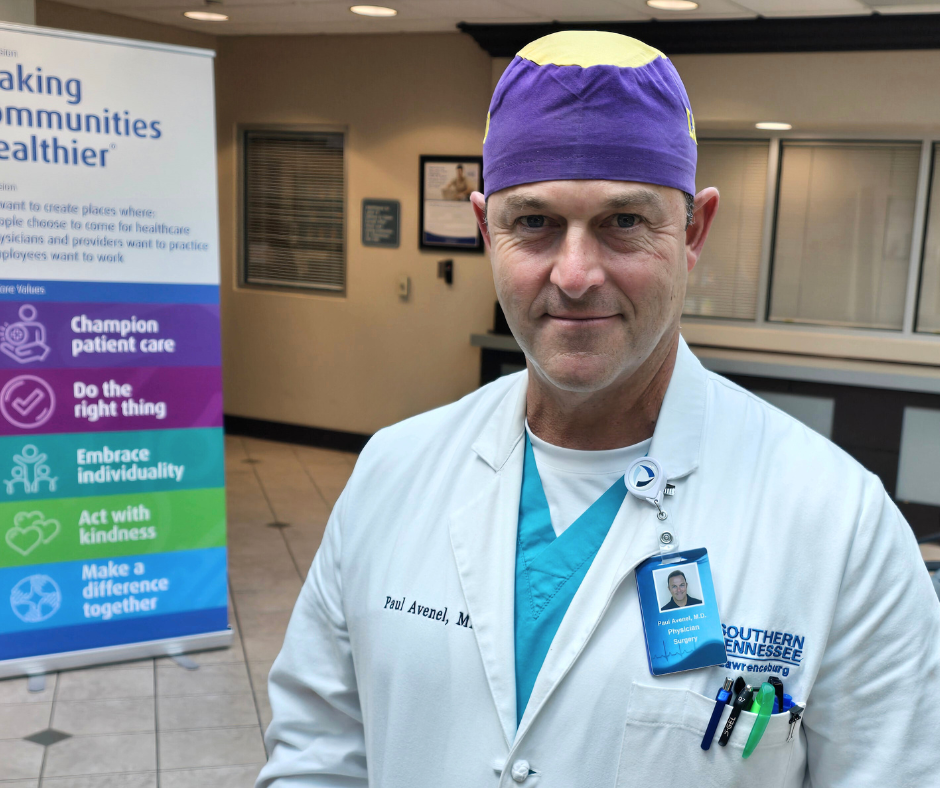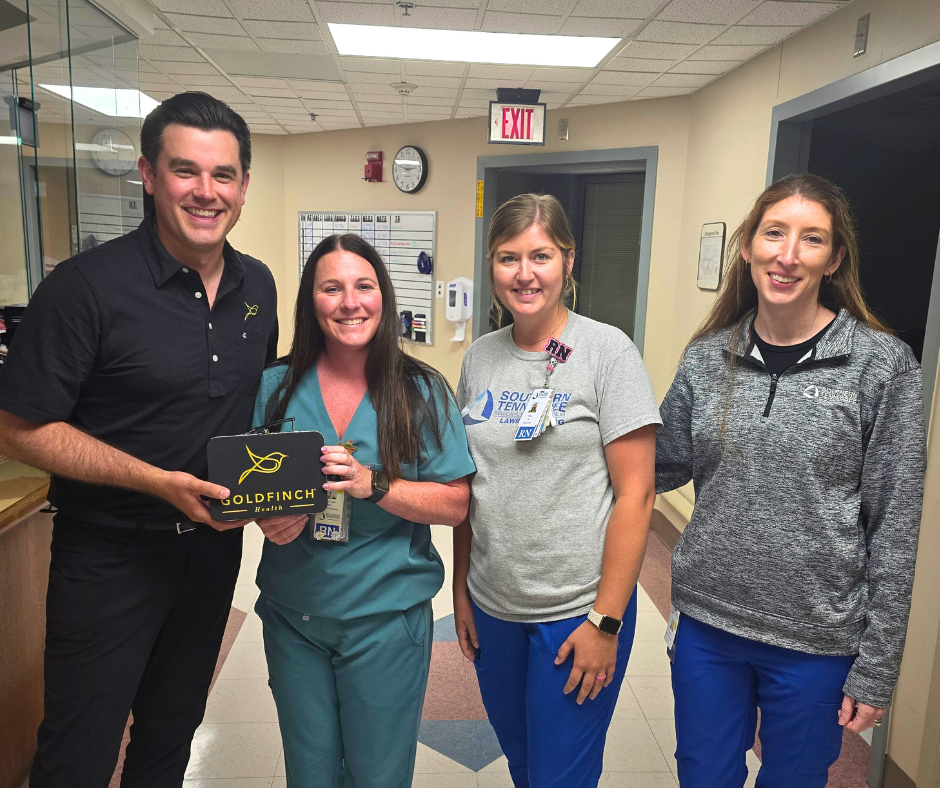STRHS-Lawrenceburg Signs on to Billion Pill Pledge
August 19, 2024

 |
 |
Southern Tennessee Regional Hospital System - Lawrenceburg recently announced it has signed on to the Billion Pill Pledge, an innovative first dose prevention program that combats the country’s growing opioid overdose crisis and prevents future addiction. The Billion Pill Pledge aims to reduce leftover opioids after surgery in the United States by 1 billion pills each year, preventing those pills from being used unnecessarily or illegally.
Surgery has long been known as a gateway to long-term opioid painkiller use and dependence. The Billion Pill Pledge program, operated by Iowa City’s Goldfinch Health, enables STRHS-Lawrenceburg and other community hospitals to enhance patients’ preparation for surgery, better manage any surgery-related pain, and minimize overall opioid use when opioids may not be necessary or alternatives to opioids are available.
“Opioid prescriptions have long been the go-to for pain management following surgery, but too often, these prescriptions go partially unused, and leftover pills become an extreme risk to families when accessible within the home.,” said John Greenwood, co-founder of Goldfinch Health. Statistics suggest that one opioid prescription in a household increases the risk of overdose by 60%; and two prescriptions increase the overdose by 625%. “We recognized that if we prevent the first dose, we can prevent the overdose,” said Greenwood “And that’s how and when the Billion Pill Pledge was born.”
The Billion Pill Pledge includes a growing partnership of community hospitals and health systems throughout Tennessee. The program is designed for quick and efficient adoption by hospital surgery departments, providing additional support to surgeons, anesthesia teams and nursing staff members as they educate patients before and after surgery and support their full recovery with opioid alternatives when clinically feasible.
“We are excited to take part in the Billion Pill Pledge program, as it powers our proactive efforts to stop the potentially devastating effects of opioid misuse and abuse in our area before they start,” said Mike Howard, Chief Executive Officer of STRHS-Lawrenceburg. “It’s On Us to address opioid addiction and overdoses head-on, and we know that reducing opioid prescriptions, days supply, or quantity when not necessary, meaningfully advances our mission of making communities healthier by protecting the health and safety of those who count on us every day.”
Tennessee is the second state to approve funding in support of the Billion Pill Pledge program. Launched in Iowa in 2022, the initiative has demonstrated a 60% reduction in prescription opioids used after surgery and up to a 93% reduction in opioid refills after surgery. With four out of five illicit opioid users starting with prescription opioid medications, the Billion Pill Pledge program’s reduction in the prescription of opioid pain medications helps stop opioid addiction before it can begin.
The initiative includes evidence-based education, tailored implementation support, and transparent reporting. Use of the Enhanced Recovery protocols and the support provided through the program improves post-surgical health outcomes, saves healthcare costs, and prevents opioid addictions. As a part of this program, STRHS-Lawrenceburg patients will have access to a Goldfinch Nurse Navigator, an expert in surgery and recovery, as well as patient support during the critical period before and after surgery to help increase the use of opioid-minimizing surgery protocols.
“All of us at STRHS-Lawrenceburg are committed to doing what we can to help combat the opioid crisis that is plaguing Tennessee and the rest of the country, and partnering with the Billion Pill Pledge program gives us access to additional resources to effectively fight that battle,” said Dr. Paul Avenel, General Surgeon at STRHS-Lawrenceburg. “Working together with our patients to implement some of the initiative’s evidence-based enhancements around our approach to minimizing surgical pain will allow us to provide great care and outcomes, while minimizing the dangers of improper opioid use.”
